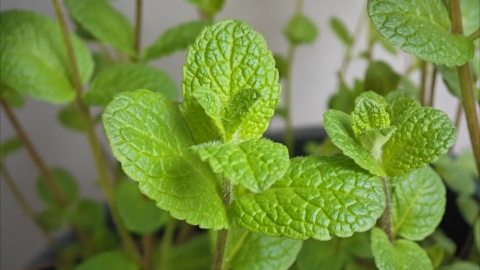Can mint leaves treat rhinitis?
Peppermint leaves can to some extent assist in relieving discomfort symptoms of rhinitis, but cannot replace professional medical treatments. Detailed analysis is as follows:

Peppermint leaves contain volatile oils, such as menthol and methyl ketones, which provide a cooling sensation, stimulate nasal mucosal vasoconstriction, reduce nasal congestion and swelling, relieve nasal obstruction, and improve olfactory impairment through their aromatic odor. Additionally, they have certain antibacterial and anti-inflammatory properties that can reduce bacterial growth in the nasal cavity, decrease inflammatory responses, and alleviate symptoms such as runny nose and nasal itching caused by rhinitis. In daily life, peppermint water can be used to rinse the nasal cavity or inhale peppermint aroma to assist in relieving rhinitis symptoms.
However, rhinitis has complex causes, including infection, allergy, heredity, environment, and other factors, with diverse pathophysiological mechanisms. Peppermint leaves cannot fundamentally address these complex causes. Professional medical treatments include precise diagnosis and systematic therapies such as drug therapy, immunotherapy, and surgical intervention. These targeted scientific approaches effectively control the condition and reduce recurrence. The effects of peppermint leaves are limited and cannot substitute for professional medical interventions. When the condition is severe or does not improve, timely medical consultation and proper treatment are the correct choices.
When using peppermint leaves to relieve rhinitis, it is important to note that some individuals may be allergic to them. A skin allergy test should be conducted before use, and overreliance should be avoided to prevent delays in treatment.








